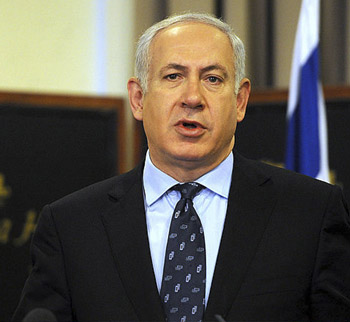JERUSALEM — Britain and France have summoned their Israeli ambassadors to protest Israel’s decision to authorize housing construction in the West Bank and eastern Jerusalem.
The ambassadors were summoned Monday amid reports that the two countries would recall their envoys in Israel for consultations.
Sweden has also summoned its Israel ambassador, according to reports.
“We deplore the recent Israeli government decision to build 3,000 new housing units and unfreeze development in the E1 block,” the British Foreign Office said in a statement, threatening a “strong reaction” if construction goes ahead. “This threatens the viability of the two-state solution.”
The E1 corridor, which connects Jerusalem to the large Ma’aleh Adumim settlement, is a piece of land that the Palestinians say is necessary to keep the borders of their state contiguous.
Unnamed European Union (EU) officials reportedly denied reports that the United Kingdom may cancel trade agreements with Israel, and France’s Foreign Ministry said it would not recall its ambassador to Israel.
The EU officials are quoted as having told The Marker, an Israeli financial daily, on Monday that the U.K. has no independent trade agreements with Israel, and that its trade with Israel is anchored in the European Union’s trade agreement with Israel. The U.K. has not made any request to change the EU’s trade agreement, the officials added.
A statement by the French Embassy in Tel Aviv on Monday denied reports by Ha’aretz that France is considering recalling its Israeli ambassador due to Israel’s announcement, a French Foreign Ministry spokesman said.
“France has other means to express its protest,” the French Embassy in Tel Aviv wrote in a statement.
Israeli Prime Minister Benjamin Netanyahu said Sunday at the weekly cabinet meeting that Israel will continue to build in Jerusalem “and in all the places that are on the map of Israel’s strategic interests.”
The authorization for the housing plans reportedly was made by the nine-member security cabinet on the evening of Nov. 29 in the hours after the United Nations General Assembly approved enhanced observer statehood status for the Palestinians.
The approval has been condemned by the United States and the United Nations, in addition to other European countries.
The cabinet also decided on Sunday to officially reject the UN vote that upgraded the status of the Palestinians and said it would not transfer tax payments to the Palestinian Authority.
“The Jewish People have natural, historical, legal rights to its homeland with its eternal capital Jerusalem,” the cabinet resolution said in part. “The State of Israel as the state of the Jewish People has rights and claims to areas that are under dispute in the Land of Israel.”
The resolution also said that last week’s vote by the UN General Assembly to grant the Palestinians non-member observer state status will not be used as the basis for future peace negotiations.
On Sunday, Finance Minister Yuval Steinitz also said he would not transfer tax payments collected by Israel on behalf of the Palestinian Authority as part of the punitive measures taken in the wake of the General Assembly vote. Instead, Steinitz said, he would use the money “to offset their debt to the Electric Corporation.”'
